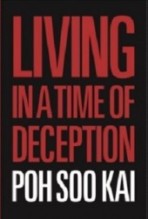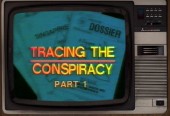Speech delivered by Teo Soh Lung at the forum hosted by Singaporeans for Democracy (SFD) on 4 December 2010 at the Grand Pacific Hotel for stakeholders who have submitted reports to the United Nations Office of the High Commissioner for Human Rights (see http://www.sfd.sg/content/upr-whats-next-singapore-ngos)
On 1 November 2010, I submitted on behalf of Function 8 a report with just one recommendation – Abolish the ISA. At that time, F8 was not a legal entity. Today however, F8 is a registered company limited by guarantee. Due to this change of status, members felt that it would be better for those members who are former ISA detainees, to endorse the report rather than for the company to do so. Hence the UPR report is submitted by a group of 6 former ISA detainees. (TSL, Vincent Cheng, William Yap, Tan Tee Seng, Wong Souk Yee and Low Yit Leng.)
We intend to submit an amended report as further research revealed that the number of people arrested and detained under the ISA is much larger than what is stated in our present report (UPR on Human Rights 2010).
Now, why do we recommend the abolition of the ISA? This law has been in existence for more than half a century and its impact on society is horrendous. Its life began as the Emergency Regulations in 1948 . It was passed into law in 1955 as the Preservation of Public Security Ordinance (PPSO). When Singapore joined Malaysia in 1963, the Federation of Malaya’s Internal Security Act 1960 became part of our law.
The PAP came into power in 1959 on the election promise to release all political prisoners. It reneged on that promise. Many who were detained by the British in the 1950s were not released. When their detention orders came up for review, they were renewed.
The first major arrests carried out by the PAP with the support of the Internal Security Council was in 1963. At least 151 people were arrested and imprisoned without trial. Among those arrested were prominent members of the opposition like Dr Lim Hock Siew, Dr Poh Soo Kai, Lim Chin Siong, Said Zahari, trade unionists like Sydney Woodhull, S T Bani, Jamit Singh, A Mahadeva, Fong Swee Suan and University undergraduates and graduates. Those arrested were the cream of our society. Many were imprisoned not for one or two months but for years and decades. Dr Lim was imprisoned for 19 years, Dr Poh and Said Zahari for 17 years.
Arrests under the ISA did not stop in 1963. Hundreds were arrested throughout the 1960s and 1970s. A former ISA detainee estimates the number to be in the thousands. In 1966, Barisan MP, Chia Thye Poh together with more than 30 others were arrested. Chia was later to become the world’s longest serving political prisoner. He was imprisoned for 32 years. In the 1970s, Kuo Pao Kun and Goh Lay Kuan, two cultural icons were arrested. Prominent lawyers like Tan Jing Quee, R Joethy, G Raman and Ong Bock Chuan were also arrested in the name of national security.
After the waves of arrests in the 1960s and 1970s, there was no one left who could pose as a political challenge to the PAP. There was no opposition in parliament after the Barisan Sosialis staged a walkout in 1966. There was also no effective civil society championing human rights. Everything was quiet. In 1987, 22 alleged Marxists were arrested. That effectively wiped out the weak civil society existing at that time.
Following the bombing of the Twin Towers on September 11, 2001, 76 alleged members of Jemaah Islamiah and Al Qaeda operatives were arrested. Throughout this decade, Muslims were the victims of the ISA.
In 2004, the former Home Affairs Minister Wong Kan Seng declared “We will not hesitate to use the ISA to defend and protect the security of Singapore and Singaporeans. But we do not invoke such powers lightly. In other words, the Government does not use the ISA to simply detain people unnecessarily.[1]” In less than a decade, he had ordered the arrest of at least 76 people under the ISA. Some were detained for more than 6 years. I don’t know if he had invoked his powers too lightly.
The ISA is a draconian law which originated during the emergency in 1948. There is no emergency today. There are plenty of existing laws that will take care of acts of terrorism. We have the Penal Code, the Sedition Act, Explosive Substances Act, Corrosive and Explosive Substances and Offensive Weapons Act, Vandalism Act and lately, the Terrorism (Suppression of Bombings) Act and the Terrorism (Suppression of Financing) Act.
The ISA is a law that instills great fear in citizens. It ensures that citizens keep in line. More than 50 years of the use of the ISA by the PAP have dulled and tamed our minds. We are afraid of independent thoughts. We fear supporting or joining opposition parties. We worry about what the government will do to us if we are critical of them. So we trudge along, living in fear and often times, not even realising that we are living in fear! We go on with our lives, not living as full human beings, unaware of our rights to free speech and assembly.
Having been victims of the ISA, my friends and I want to see the ISA abolished. We have therefore made this recommendation in our report.
[1] Today – Afternoon Edition, 15 January 2010
Singapore Government’s National Report for Universal Periodic Report





Pingback: Episodes the Singaporean history textbooks forgot. | funny little world